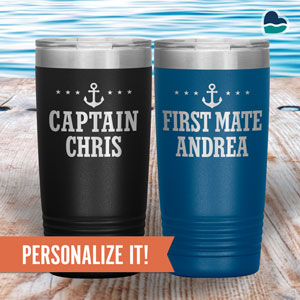Katmai Crater Lake, Alaska, USA
Little known and seldom seen, Katmai Crater Lake is an example of nature’s handiwork at its most impressive. Located on the Alaskan Peninsula within Katmai Park and Wilderness, the crater lake is young by geological standards: The caldera was created as a result of the eruption of lava from Novarupta Volcano in 1912. It was thought at the time that Katmai volcano itself had erupted in an…
Keep scrolling to read more.
Welcome to the ultimate guide to Katmai Crater Lake! Article topics include:
- All About Katmai Crater Lake
- Where to Stay
- Vacation Planning Tools
- Things to Do
- Known Fish Species
- Katmai Crater Lake Map
- Statistics / Weather / Helpful Links
- Katmai Crater Lake Gifts
Looking for Katmai Crater Lake cabins or other accommodations? Save time and use this interactive map to find, compare and book at the best rates. Or explore more of our favorite travel partners.
This post contains affiliate links. If you click and purchase, we may earn a small referral fee at no extra cost to you. Read our full disclosure.
Explore Area Hotels
Nearby offer more hotel accommodations:
All About Katmai Crater Lake, AK
Little known and seldom seen, Katmai Crater Lake is an example of nature’s handiwork at its most impressive. Located on the Alaskan Peninsula within Katmai Park and Wilderness, the crater lake is young by geological standards: The caldera was created as a result of the eruption of lava from Novarupta Volcano in 1912. It was thought at the time that Katmai volcano itself had erupted in an explosion ten times as powerful as Mount St. Helen, raining an estimated 3 cubic miles of magma over a wide area for over 60 hours. Drifts of ash reached ten feet deep in nearby villages, and the resulting ash fell as far away as Seattle. Pumice still floats on Naknek Lake, a few miles away.
When an expedition reached the site in 1916, the entire top of the mountain had collapsed, leaving a crater that was quickly filling with water. It wasn’t until the 1950s that it was discovered that Katmai itself didn’t explode, but Novarupta, a small vent six miles to the east had erupted, draining so much molten rock from beneath the mountain that the cone caved in, removing 800 feet from the top of the summit. The molten lava and ash created one of Alaska’s best-known geological features: the Valley of Ten Thousand Smokes.
Little is known of the lake itself. Reaching the lake’s surface is dangerous, and at least ten deaths have been reported from escaping gases. Visitors can view Katmai Crater Lake on “flightseeing tours” by float plane. Small glaciers have formed inside the rim, and it is thought that most of the lake’s water is derived from them. The lake has the beautiful blue-turquoise color of glacial lakes, caused by fine glacier-ground rock flour, and is estimated to be about 800 feet deep at this point. When first discovered, the lake had a horseshoe-shaped island in the center, since covered with water. Reports from 1923 say the water had disappeared completely, leaving only fumaroles, mud pots, and a large mud geyser at the bottom of the caldera. It has since refilled. Although the rim of the crater is 6,716 feet above sea level, the lake’s surface is at less than 4000 feet but likely still growing. To protect the fragile area for further study, the Katmai Park was created in 1918: 4,021,327 acres encompassing not only Katmai but 13 other volcanoes and a rugged and mostly untouched wilderness visited only by float plane and the hardiest of back country hikers.
The past hundred years have added considerably to scientific understanding of how volcanoes develop and erupt. Many discoveries in the Katmai Crater Lake area have added to that knowledge. For instance, with the 1912 eruption filling nearby Ukak Valley with hundreds of feet of ash, thousands of jets of steam began escaping. Originally scientists believed that an area similar to the permanent thermal vents in Yellowstone National Park had been created. Since that time, most of the water creating the steam has dissipated, and there are few wisps of steam escaping. The Valley of Ten Thousand Smokes is nearly smokeless and is used as a migratory route by brown bears which are numerous in the area. The entire wilderness is bear-heaven: 2100 brown bears are thought to live within the protected wilderness. Bear viewing is now one of the largest attractions to the park. More active visitors enjoy mountaineering, ice-climbing and hiking.
Seven back-country lodges are open within the park, with more planned for the future. Brooks Camp is closest to Katmai Crater Lake and can be reached by air or by boat during high water from King Salmon, the Park headquarters. At Brooks Camp, buses take tourists to the Valley of Ten Thousand Smokes, traveling through the boreal forest and crossing streams before arriving at the alpine tundra; an optional hike is available down to the Valley floor for an up-close view of the ash layer. Rangers accompany each bus, educating visitors about the area’s cultural history, geology of the area and, of course, the bears. From the Three Forks Overlook, hikers can venture into the valley on their own, with appropriate permits and equipment. Two camping shelters exist in the valley, but they are not staffed. Camping regulations are strictly enforced, particularly the proper storage containers for all foodstuffs. Bears here are accustomed to people but do not associate them with food due to these rules. Because of this, visitors can get within 50 yards of bears, but bears ALWAYS have the ‘right-of-way’. On busy summer days, ‘bear-jams’ caused by a bears napping on the path can force visitors to wait a couple of hours at times . . . until they awake and amble on. Bear viewing is best in this area in late June, July and September. Another popular viewing spot overlooks Brooks Falls, where dozens of brown bears can be seen fishing for salmon during one of the world’s largest salmon runs.
One campground is located near Brooks Camp with limited facilities. Backcountry camping is allowed, but camps must be established over a mile-and-a-half from Brooks Camp outside of the Development Zone. Many visitors arrange to stay at Brooks Lodge and can enjoy several different package tours, including guided fly-fishing trips into the park. Sport fishing is a big attraction, with rainbow trout, sockeye (red) salmon, silver (coho) salmon, Dolly Varden, and lake trout all being caught. Day trips can be arranged from Anchorage or several days can be included in the stay.
Many of the trails near Brooks Camp are wheelchair accessible and allow every visitor to experience the spectacular scenery of snow-capped peaks, rugged valleys, and lakes large and small. Kayaks and canoes can be rented at Brooks Camp, and a restaurant and showers are available to visitors. The tiny village of King Salmon has several hotels, lodges and bed-and-breakfasts serving the tourism trade. Located on the Naknek River, a single road reaches the 15 miles to the even smaller village of Naknek, but most visitors prefer to come by air. There is no connection by road to any major Alaskan city. This truly is the Alaskan Bush-difficult to get to but well worth the effort.
Katmai Park and Wilderness area is the trip of a lifetime, even if you don’t hike to the rim of Katmai Crater Lake or view the lake by air. Nowhere else can one see this many bears in their natural habitat. The rainbow trout are eager for the well-cast fly. And the picture-perfect scenery will fill albums of vacation pictures. If you’ve ever dreamed of visiting Alaska, this is the place to start.
Things to Do at Katmai Crater Lake
These are some activities in the Katmai Crater Lake, AK area visitors can enjoy:
- Fishing
- Canoeing
- Kayaking
- Campground
- Hiking
- Ice Climbing
- Wildlife Viewing
- National Park
What Kind of Fish Are in Katmai Crater Lake?
Katmai Crater Lake has been known to have the following fish species:
- Chinook Salmon
- Dolly Varden Trout
- Lake Trout
- Rainbow Trout
- Salmon
- Trout

Find Places to Stay at Katmai Crater Lake
If you’re considering a Katmai Crater Lake lake house rental or hotel, we’ve made it super easy to find the best rates and compare vacation accommodations at a glance. Save time using this interactive map below.
Note: These are affiliate links and we may earn a small commission if you click and make a purchase. Read our full disclosure policy here.
More Sites to Book a Katmai Crater Lake Vacation
Our interactive Katmai Crater Lake lodging map above is an easy tool for comparing VRBO rental homes and nearby hotels with Booking.com, but there could be times when you need to expand your search for different types of accommodations. Here are some other lake lodging partners we recommend:
Katmai Crater Lake Statistics & Helpful Links

Lake Type: Natural Freshwater Lake, Not Dammed
Shoreline Length: 6 miles
Normal Elevation (Full Pond): 3,955 feet
Maximum Depth: 800 feet
More local lakes to explore in this area:
We strive to keep information on LakeLubbers as accurate as possible. If you’ve found something here that needs updating, please touch base by filling out our Content Correction form.
Shop Katmai Crater Lake Gifts
More Katmai Crater Lake news from LakeLubbers.com
- Advertise your vacation rental property or local business: DETAILS HERE
- The Katmai Crater Lake forum has been discontinued: HERE’S WHY
- New Katmai Crater Lake photos coming soon!
- You’re invited to join our lake-lovin’ community on Facebook and Instagram!
- Share this Katmai Crater Lake article with your fellow LakeLubbers:



